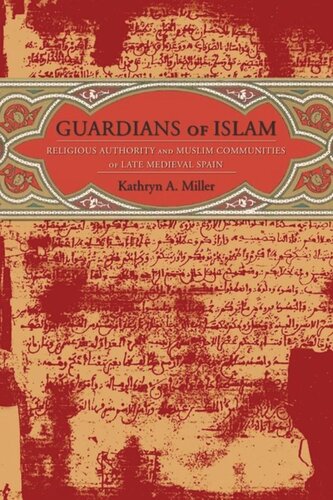

Most ebook files are in PDF format, so you can easily read them using various software such as Foxit Reader or directly on the Google Chrome browser.
Some ebook files are released by publishers in other formats such as .awz, .mobi, .epub, .fb2, etc. You may need to install specific software to read these formats on mobile/PC, such as Calibre.
Please read the tutorial at this link: https://ebookbell.com/faq
We offer FREE conversion to the popular formats you request; however, this may take some time. Therefore, right after payment, please email us, and we will try to provide the service as quickly as possible.
For some exceptional file formats or broken links (if any), please refrain from opening any disputes. Instead, email us first, and we will try to assist within a maximum of 6 hours.
EbookBell Team

4.8
64 reviewsMuslim enclaves within non-Islamic polities are commonly believed to have been beleaguered communities undergoing relentless cultural and religious decline. Cut off from the Islamic world, these Muslim groups, it is assumed, passively yielded to political, social, and economic forces of assimilation and acculturation before finally accepting Christian dogma.
Kathryn A. Miller radically reconceptualizes what she calls the exclave experience of medieval Muslim minorities. By focusing on the legal scholars (faqihs) of fifteenth-century Aragonese Muslim communities and translating little-known and newly discovered texts, she unearths a sustained effort to connect with Muslim coreligionaries and preserve practice and belief in the face of Christian influences. Devoted to securing and disseminating Islamic knowledge, these local authorities intervened in Christian courts on behalf of Muslims, provided Arabic translations, and taught and advised other Muslims. Miller follows the activities of the faqihs, their dialogue with Islamic authorities in nearby Muslim polities, their engagement with Islamic texts, and their pursuit of traditional ideals of faith. She demonstrates that these local scholars played a critical role as cultural mediators, creating scholarly networks and communal solidarity despite living in an environment dominated by Christianity.